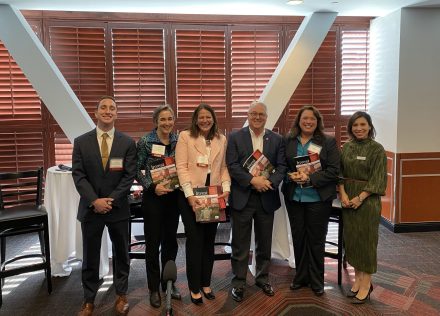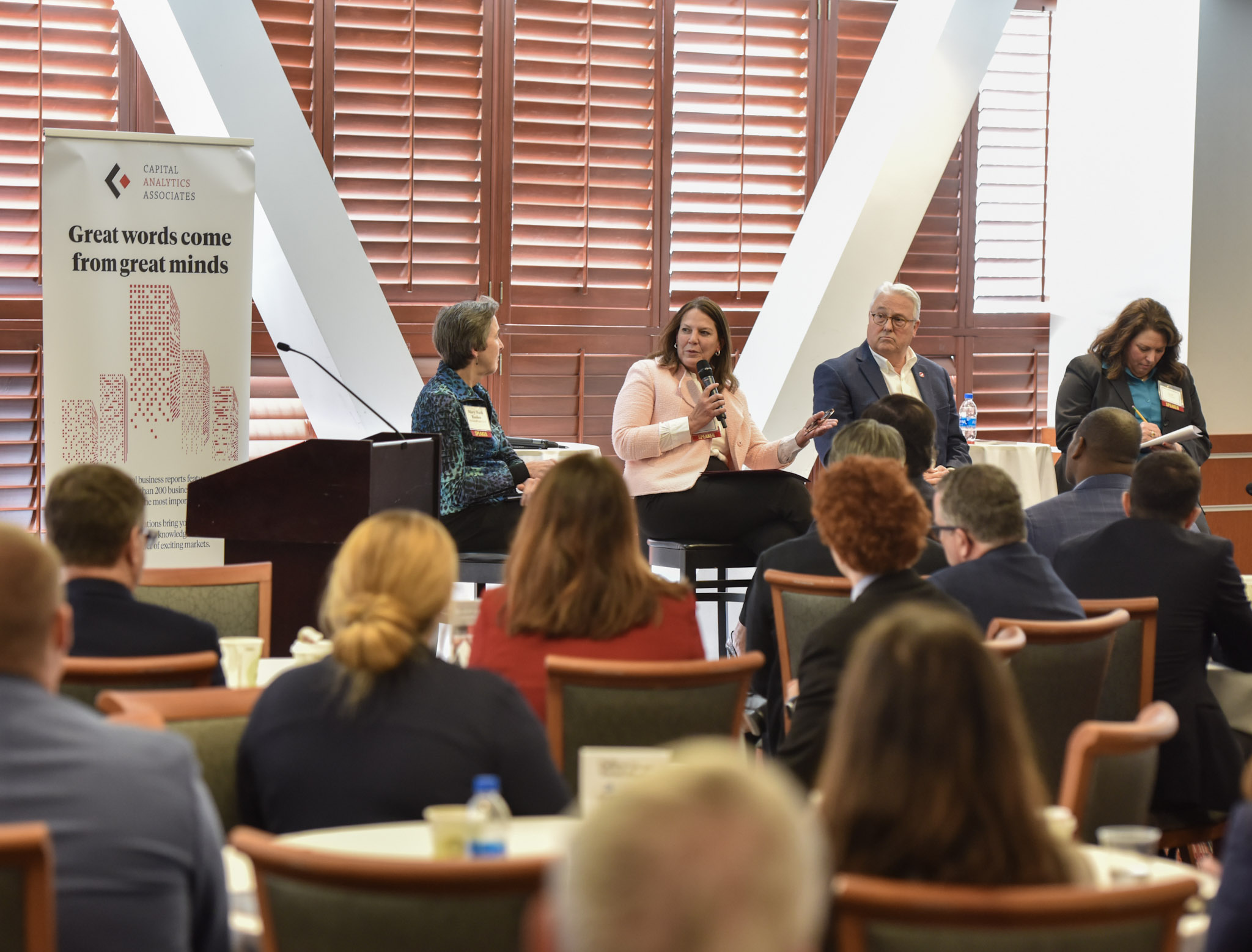Book was joined by N.C. State Chancellor Randy Woodson and Angela Quick, senior vice president of the education practice area at RTI International.
North Carolina is fortunate to have a higher education landscape that includes a diversity of public and private colleges and universities that help fuel the state’s economy and are foundations for innovation across industries, President Connie Ledoux Book shared during a recent panel discussion hosted by Capital Analytics Associates.
Book was joined by N.C. State Chancellor Randy Woodson and Angela Quick, senior vice president of the education practice area at RTI International research institute, on the panel, which was a part of Capital Analytics Associates’ launch of its annual Invest: Raleigh-Durham report. The report offers a deep look at many of the economic trends and factors impacting the regional and state economy.
“It’s really a remarkable place to provide leadership in higher education, and Elon is proud to be a part of that,” Book said of North Carolina. “Creating an innovative culture is in the forefront of our mind all the time at Elon.”

The launch event brought together more than 200 leaders from across industries for networking and discussion. Along with the panel focused on higher education were panels exploring the current state of the real estate market, technology and innovation.
Book shared Elon’s goal to provide interdisciplinary opportunities to students that can help broaden their perspective, deepen their knowledge and better prepare them to address a wide variety of professional challenges. A liberal arts and sciences curriculum also helps students develop what many call “soft skills,” such as communication, collaboration and creative thinking, skills Book said she prefers to call “power skills.”
“We definitely are believers in engaged learning as the driver for building graduates who can work across differences, who work best in teams, and most importantly, who see themselves as having the ability to move change forward,” Book told the crowd gathered at PNC Arena in Raleigh. “That means you have to create the kind of dynamic space in the classroom. … Building a classroom that empowers students to see themselves as problem solvers means you have to give them problems and teach them to work together as a team and bring each others’ strengths to bear.”
The launch event celebrated the publication of the new Invest: Raleigh-Durham report, which included multiple articles focused on the state of higher education in North Carolina. Among those articles was a Q&A with Book that touched on the innovative curriculum at the Elon University School of Law, a 2.5-year experiential approach that reduces costs for students, and on how Elon is adapting its curriculum to meet the economic demands of the future.



